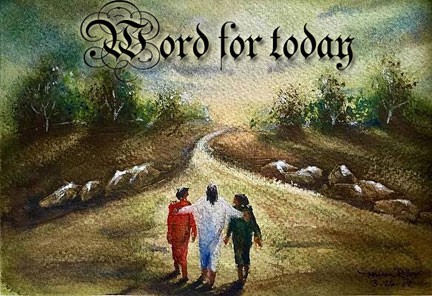Watch
Events
Articles
Market
More
The only property tax in God's Law is a tithe of the produce of the land, including food, wine, oil, and firstborn animals. And guess what? You get to eat your own tithe as you share it with your neighbors.
In two out of three years, the land tithe is to be taken to Jerusalem. If it's not practical to transport it, you can sell it, then take the money to Jerusalem, buy whatever food and drink you want, and have a big party with God. The third-year land tithe is to be gathered into a common, local storehouse to be shared with the poor, landless, and indigent in your own community.
Deuteronomy 14:22-29



Our brother Izzy needs views. Lets help him out by watching his Mussar Chanel on YouTube.
https://www.youtube.com/live/X....0OVS5VG5zQ?si=dq0Lrd



082225 / 28th day of the 5th month 5786
WORD FOR TODAY “does MESSIAH say we must keep Torah?”: Mar 1:44 and He *said to him, "See that you say nothing to anyone; but go, show yourself to the priest and offer for your cleansing what Moses commanded, as a testimony to them."
WISDOM FOR TODAY: Pro 24:17 Do not rejoice when your enemy falls, And do not let your heart be glad when he stumbles; Pro 24:18 Or the LORD will see it and be displeased, And turn His anger away from him.
www.BGMCTV.org




recognizing an unholy spirit is sometimes more difficult than one might imagine. More often than not they appear to be harmless until it’s too late. 1 Samuel 28:14, “What does he look like?” asked Saul. “An old man is coming up,” she replied. “And he is wearing a robe.” So Saul knew that it was Samuel, and he bowed facedown in reverence.” Because Samuel refused to speak to Saul after his disobedience and God removed His Holy Spirit from him, Saul continues to sin asking a witch to summon Samuel. The unholy spirit spoke through the witch and although it may have sounded to Saul like something Samuel might say, it wasn’t Samuel.



Thought for Today: Friday August 24
Patience is not simply “teeth-clenched” endurance. It is an attitude of expectation. Farmers patiently watch their barren ground because they know there will be results. They have patience in their labours because there will be products of their labour. The same is in the spiritual realm. YHVH knows the final product of what is happening to us, and He would have us link patience to our faith. Ask YHVH for the gift of patience today --- and then use it.



Henk Wouters
Delete Comment
Are you sure that you want to delete this comment ?